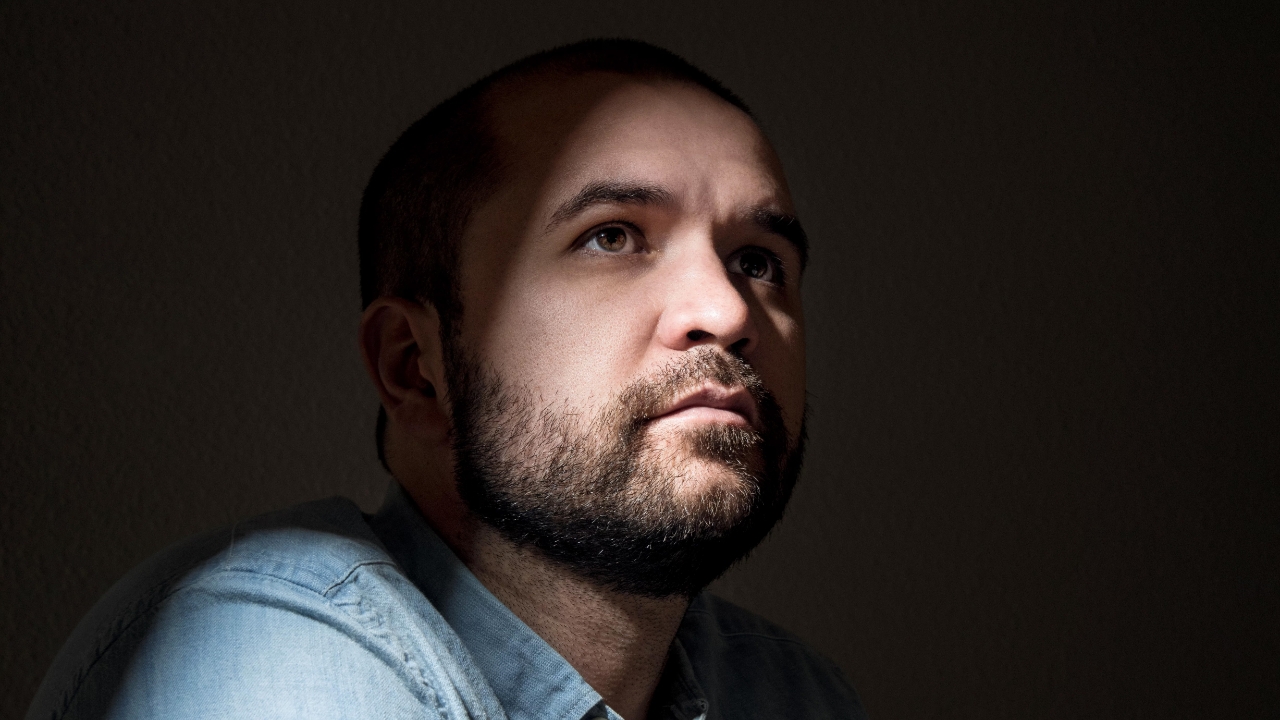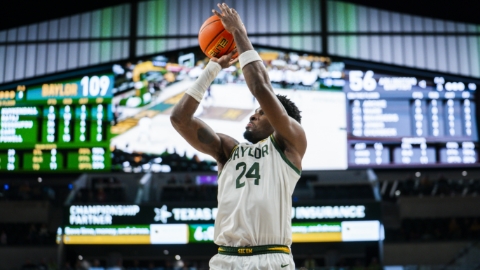
Jonathan Tjarks is one of the best people you could have ever met. That the sentence is in the past tense makes me immensely sad.
Tjarks was a basketball writer, or at least that’s the easiest way to introduce him. He started blogging about the NBA, then kept grinding and eventually found his way to the Ringer. While there, he covered the league and provided unique insight into the game.
I first met Tjarks by hitting him up to see if I could write a story for the Ringer about Baylor basketball during the championship season. I’d never met Tjarks before that, but he seemed like a nice guy — and with a degree from UT — I knew he would have a good grasp on the Big 12.
Despite not knowing me at all, Tjarks said, “I think that’s a great idea,” and worked hard to try and get that story run at the Ringer. Ultimately the Ringer elected not to provide any college basketball coverage, so the piece didn’t run.
That easily could have been the end of my interactions with Tjarks. A very nice guy did a favor for someone he never knew. It didn’t work out. Lots of things don’t work out in life.
Tjarks was different. In a society where the biggest rise in religion is “none” Tjarks went from “none” to Christian. In a story for the ages, he was at a concert doing ecstasy when he suddenly had an experience that made him a believer. Before that, he’d considered Christianity, but he could never get past how it just seemed like solid life lessons without enough basis to believe. I don’t think he — or I — would advise that ecstasy is usually the path to faith, but I don’t think many people could have lived a life like Tjarks.
Not so long ago, but what I’m sure feels like an eternity now, Tjarks was diagnosed with an extremely rare form of cancer. He’d mentioned on the Ringer that his five-year survival rate was between 15 and 30%. He had times where he felt far more optimistic than those odds, and other times when the reality of those numbers hit home.
During his cancer battle, Tjarks and I would exchange texts about the NBA and Baylor prospects. “Was Jeremy Sochan really a better prospect than Kendall Brown?”, “Could Texas overcome its shooting woes and make the second weekend?”, “Were we both idiots for thinking Evan Mobley would be a superstar and was the clear choice to go No. 1 over Cade Cunningham?”
Everyone has a few moments that stick with them, and after everything that’s happened, one of those will be when Tjarks and I talked on the phone while he was at chemotherapy in March. Because the chemo sessions ran so long, Tjarks would call a ton of different folks and catch up with them while he went through those sessions.
While undergoing brutal chemotherapy, Tjarks remained optimistic but open. Anytime I’d spend too much time — really what only Tjarks could have felt was too much time — on him, he’d immediately circle back to me. At the time, I was considering a big career change from my day job as an attorney. As I’m sure he was exhausted and had every reason to be miserable, he joked, “Man, all you lawyers want out. That’s the one consistent thing!”
Thousands of small issues determine whether someone believes in a God. But most debates I have with atheists come down to a simple question: “If a just God orders the universe, how do so many bad things happen to good people?” In this instance, and phrased succinctly, “How does one keep faith in a just God when he allowed Jonathan Tjarks to die of a painful and brutal cancer before he turned 35?”
I might be wrong. I’m wrong a lot. I take chances I shouldn’t take, and I’m often too afraid to take the ones I should. So it’s possible I still don’t really know what the heck I’m talking about.
But when I look at that question, I come back to two things: Free will and time.
Tjarks is free will personified. He grew up an atheist and become one of the best men to talk about faith. As Shea Serrano mentioned on Twitter, he went down to Houston after a hurricane because he knew people needed help. As he rose the ranks as a writer and had more responsibilities as a father and husband, he was never too busy to check in and ask, “Hey, did you ultimately make a decision?”
When he got cancer, Tjarks had a choice about how to respond. As Viktor Frankl once noted, “Everything can be taken from a man but one thing: the last of the human freedoms — to choose one's attitude in any given set of circumstances, to choose one's own way.”
He chose to be the best father and husband he could be. I can’t imagine how painful some days must have been to try and play with his son. He went through experimental treatments and chemo; long scans and anxiety about the end coming. Yet he knew he could choose to spend his last days living a hard life but a valuable one.
The other way I frame that just God question is by asking the ultimate, “If you knew this was how it would end, would you still be happy with how it went?”
It’s a near unbearable tragedy to consider that Tjarks is gone. That he lived is an unbelievable joy. He was a father, husband and writer. He was a friend. He was a great man.
Tjarks deserved to experience more and add plenty of other categories to his life. He deserved to father more children and become a grandfather. Had he chosen to stick with basketball writing, he would have continued rising. And if he’d moved into another field, there’s no doubt he’d have been as successful at that as he was at everything else.
We all get to feel multiple things. And sometimes we can go back and forth. I’ll never be entirely over how unfair it is that we didn’t get 80 years of Tjarks. Or that he had to go through this agony.
In the end though, there’s plenty to get us down about life. Relationships fizzle. Expenses overwhelm us. Careers leave us unfulfilled.
Because so much can make us feel bad about ourselves or the world, it’s important to cherish those people that make the world so much better and bring joy to those around them when the world has given them every reason to not find it.
Tjarks was truly one of a kind. That he was part of our kind — even for as short as it was — gives me hope. We deserved far more time with him than we got. But I’m so glad for what we got.



